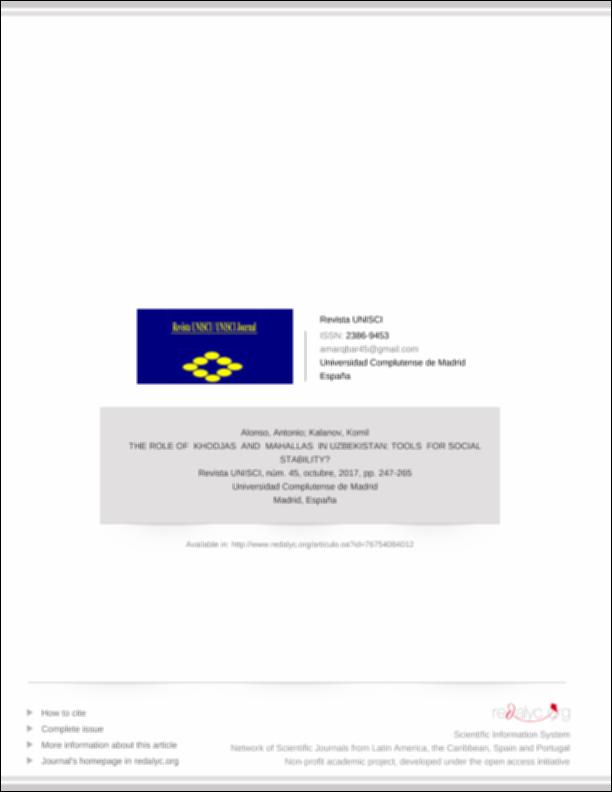Por favor, use este identificador para citar o enlazar este ítem:
http://hdl.handle.net/10637/15322The role of Khodjas and Mahallas in Uzbekistan: tools For social stability?
| Título : | The role of Khodjas and Mahallas in Uzbekistan: tools For social stability? El papel de Khodjas y Mahallas en Uzbekistán: ¿Instrumentos para la estabilidad social? |
| Autor : | Alonso Marcos, Antonio Kalanov, Komil |
| Materias: | Uzbekistan; Social model; Khodja; Mahalla; Aqsaqal; Modelo social |
| Editorial : | Universidad Complutense de Madrid |
| Citación : | Alonso Marcos, Antonio y Kalanov, Komil. The Role of Khodjas and Mahallas in Uzbekistan: Tools for Social Stability? Revista: UNISCI DOI: 10.5209/RUNI.57294 |
| Resumen : | Twenty-five years after its independence, Uzbekistan is looking for a new social model by integrating old traditions, Islam and Modernity. Following a series of interviews conducted among Uzbeks in areas of South Kazakhstan and in some regions of Uzbekistan, the authors offer an indepth analysis of traditional social structures. After seventy years of the one-party system, “Western style” political parties are not as representative of social life as the khodjas are. Leadership in Uzbekistan is more social than political. |
| URI : | http://hdl.handle.net/10637/15322 |
| Derechos: | http://creativecommons.org/licenses/by/4.0/deed.es |
| ISSN : | 2386-9453 |
| Fecha de publicación : | oct-2017 |
| Centro : | Universidad San Pablo-CEU |
| Aparece en las colecciones: | Facultad de Derecho |
Los ítems de DSpace están protegidos por copyright, con todos los derechos reservados, a menos que se indique lo contrario.


